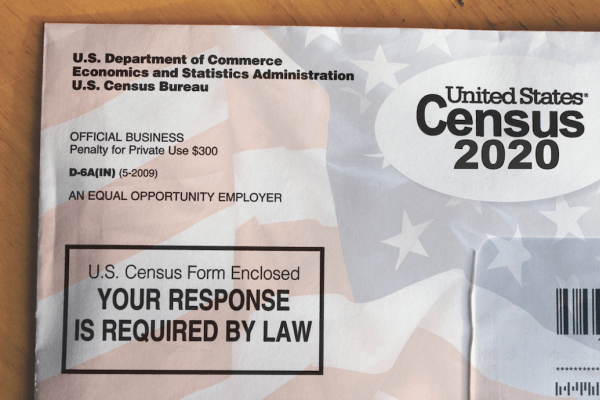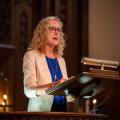By taking action, people of faith have changed hard hearts and tough laws in this nation for decades. That’s why this year, as the United Sates heads into the 2020 census amid the COVID-19 pandemic, faith leaders are stepping up to the challenge of mobilizing and educating people about the importance of participation — especially in the cities and rural areas where thousands of voices are historically undercounted, and thus underrepresented.
I’m proud to lead a multi-faith coalition of clergy and lay leaders wholly devoted to raising awareness in these hard-to-count neighborhoods and communities. Over 29 million people living in or near poverty reside in hard-to-count places.
Through old-fashioned community and congregational outreach, and savvy technological connections, our 2020 Census Faith Council has been deploying hundreds of Faith Census Ambassadors all across the nation with one mission: Equip as many people as we can with the facts about why the census impacts the wellbeing of every life and every local community.
But amid COVID-19, faith communities have been forced to shift our outreach strategies from in-person outreach to a digital and media strategy; the health of our communities is our No. 1 priority. Faith leaders are working creatively to spread the word about the census by posting information on social media, preaching on the census during remote worship services, and placing op-eds in local outlets. We will not let a global pandemic stop us from making sure every person in this country receives the representation and resources they deserve.
We do this work because it lives out our shared belief that every person counts. We all deserve to understand the full impact of the census. Too much sits in peril politically and economically to risk the chance of a census undercount anywhere, particularly in the cities and rural areas that America’s most marginalized groups call home. An estimated $800 billion dollars will be distributed as a direct result of the 2020 census count.
Every person needs to know the role they play in determining how the federal government chooses to aid their local community over the next decade.
Our work is most urgent among the communities with the most to lose and the most reason to question whether they do indeed matter in the United States. In 2010, more than 3.7 million African Americans were not counted in the census. When people are undercounted in the census, they are underrepresented in Congress — where decisions are made about fighting for vital resources and policies and drawing key political boundaries.
2020 can be the year that we combat the census undercount with the urgency of truth. Faith leaders are uniquely positioned to lead the charge. We have a deep network in the communities where people most need to hear that they risk much more by not participating than by making their voices heard. Our teams are trained to replace misinformation with fact, such as the misguided fear that the census is a disguised attempt to identify and deport undocumented immigrants. Thanks to a ruling by the U.S. Supreme Court, the 2020 census does not question citizenship status. Every person, regardless of immigration status, has the right to be counted.
As hard as our teams are working, we don’t deny the ugly and hateful ways that the census has been used to block political representation for people of color. Originally, the census counted every white man, woman, and child as a full person, while counting enslaved people of African descent as only three-fifths of a person. Indigenous Americans were not counted at all.
But in 2020, we have a chance to not only rebuke that awful past, but to write a new chapter for the census and America’s democracy. By faith and mobilized action, we’re determined to put new meaning behind “we the people” and show that everyone counts in the eyes of God and must also count in the eyes of the federal government.
The census only happens once every 10 years and now is our one shot to get it right. It’s never been easier to respond to the census by online, by phone, or mail, all from the comfort of your home. People can learn more and respond at 2020census.gov. For faith-based census outreach materials visit bit.ly/FaithfulCensus.
Got something to say about what you're reading? We value your feedback!







